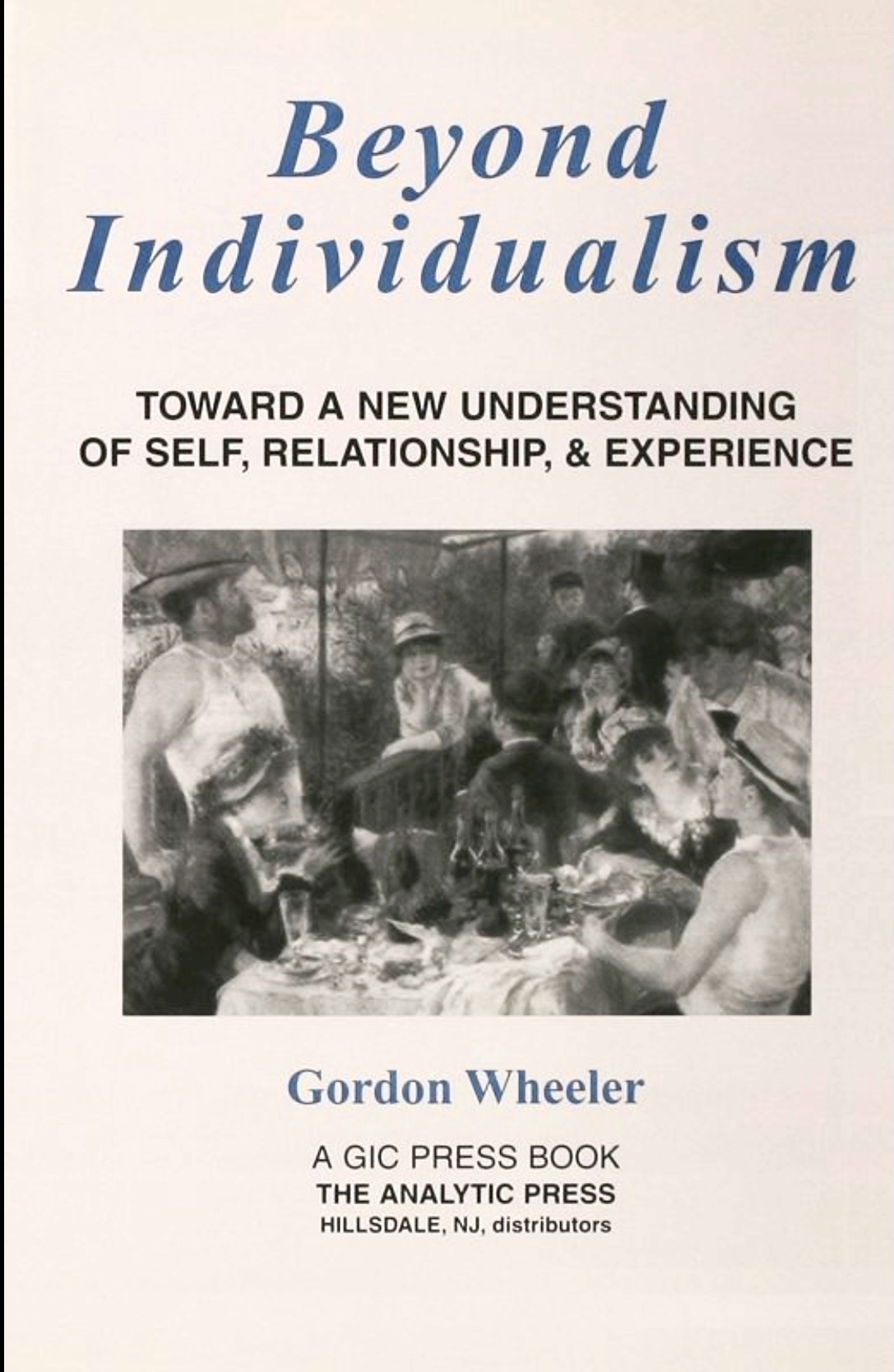Somehow I found this book and purchased the Kindle edition It exactly relates to what I’m thinking about about the moment.
As I’m grappling with psychodrama and the relational paradigm, it is good to find someone who has grappled with this in Gestalt. Gestalt was born out of psychodrama, though it has from my experience, been far more “individualistic”. It is individual therapy in the group, and then there is that Prayer by Perls! I have no doubt that Moreno pioneered a relational conception of reality (see Zerka Moreno on Doubling and Tele and The Locus of Therapy – Moreno, but that it was still somewhat rooted in the individual paradigm. Perhaps Wheeler & Harville Hendrix came to this specific consciousness separately?
History of the old paradigm
I’m reading it slowly and want to catch the nuances of his version of the relational paradigm. The first section is about the history of the old paradigm – and summed up in the quote. Is it a figure ground thing? Is the old paradigm absorbed in the next? What does he make of Buber? How does his perspective impact on practice?
The Individualist Paradigm
All this is the expression of what we have already begun calling here the paradigm of individualism, a complex and interlocking set of underlying assumptions and hidden presuppositions that has a 3000-year pedigree in the West, running straight back to the Greeks and then forward in a largely unbroken line down through the Hellenized Hebrews, the Christian synthesis and its medieval flowering, the Renaissance with its rediscovery of humanism, the Enlightenment, the 19th-Century age of scientific materialism, and right on down to our own post-modern times. In the process this paradigm serves to unite thinkers and movements as otherwise diverse as Plato and the Hebrew Prophets, Galileo and the Church, Freud and the Behaviorists, or Carl Jung and Karl Marx, all of whom may disagree vehemently and sometimes violently with each other about the dynamics and determinants of human behavior, the direction of history, the motivation and purpose of life, and so on — but all of whom are united at this deeper level by underlying assumptions, taken for granted but seldom articulated, about the nature of the individual self, which is to say, who those individual human beings are who are living that life, and having or creating or submitting to those experiences.The fundamental propositions of that paradigm, as we have already seen and as we lift them out now for examination, are: 1) that the individual is prior to relationship, and exists in some essential way apart from relational context and connection, and 2) that relationships themselves are therefore secondary, and in some sense less real than the individuals who enter into them, who after all were already there, fully formed, and can come and go from one relationship to another as their own needs and circumstances dictate, presumably without altering their own essential nature. To Plato, as we have said, these propositions must have seemed incontrovertible and probably too obvious to bear mention — as indeed they may seem to us, on some purely logical level anyway, even if we do feel some nagging discomfort with them when they’re presented in this bald way — a hesitation growing perhaps out of living or working with infants and children, out of spiritual concerns or experiences we may have had, from intimate relationship and deep commitments, or just from our everyday experiences of living with and caring for other people. The fundamental separation of one individual’s experience from that of another, which follows directly from these assumptions, would likewise have seemed obvious to Plato — as would Descartes’s classic separation of mind or self from body, which was essentially unchanged from the Greek view, only some two thousand years later. The soul, which is the essence of the person, is individual, eternal, and unchanging — and of course separate from this material world, again by creation, which again closes off developmental or relational questions.Wheeler, G. (2000). Beyond individualism: Toward a new understanding of self, relationship, and experience (1st ed.). United States: Analytic Press,U.S.
I’ll Make more notes as I go.
Tuesday 21 September 2021
Added images. Curious about the Renoir — a group?
I want to answer the questions from 2015: Is the old paradigm absorbed in the next? What does he make of Buber? How does his perspective impact on practice?


